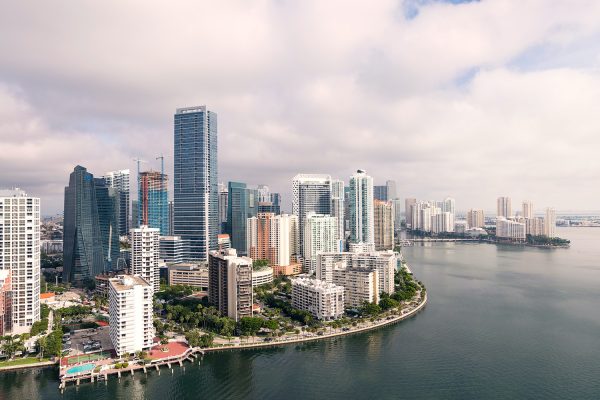
For years, it looked like Republicans were becoming the party of white, left-behind America and Democrats the party of upper-class whites and racial minorities.
Tuesday’s election hasn’t upended that narrative, but it has put a dent in it.
If you had to pick one characteristic to predict party affiliation, it would be education. The better educated Americans are, the more likely they are to vote Democratic.
Gender is another fair predictor. Women historically vote more Democratic than men. But relatively fewer men voted for Trump this year than in 2016, according to exit polls.
Exit polls
Before we delve deeper into the figures, a word of caution: these exit polls could be off.
Journalist Matthew Yglesias points out that they are subject to change as all votes are still being counted, and even then they might be wrong. Exit polls in 2016 showed that 53 percent of white women voted for Trump. A later, more thorough analysis put the figure at 47 percent.
Still, when we combine exit polls with the election results in places like Miami and the Rio Grande Valley in Texas, we can be reasonably sure Trump did better with Latino voters than many expected.
We also know his support collapsed in affluent suburbs, so it’s not unreasonable to assume that the exit polls might be overstating his support from college-educated whites.
Generalizations
The real problem is that we make these generalizations. There is no such thing as “the” Latino voter or “the” college-educated white voter.
Trump did well in South Florida, because it is home to many Latinos of Cuban, Nicaraguan and Venezuelan descent, who were alarmed by Democratic flirtations with socialism and drawn to Trump’s tough talk on the Castros and Nicolás Maduro.
Border counties in Texas are home to many legal Mexican immigrants, who may have no particular affinity for refugees from countries like El Salvador and Honduras or for illegal immigration in general.
Many Latinos around the country are Catholic, conservative and opposed to abortion, which is why Ronald Reagan once quipped they are already Republican — “They just don’t know it yet.”
Susanne Ramírez de Arellano, the former news director for Univision in Puerto Rico, argues Democrats’ mistake is to view Latinos as monolithic:
They flatten Latinos into one identity, deflating a complex and diverse voting bloc into one issue [immigration] while disregarding at their peril Latinos’ regional identities.
Ancestry
The same applies to whiteness. The only people who believe there is such a thing as “white culture” are race-obsessed identitarians on the left and white supremacists on the right.
Aaron Sibarium argued a while ago, in a separate discussion:
Ashkenazi Jews, Irish Catholics and blue-blooded WASPs are not, and never have been, one “collective group” with “a distinct cultural identity.”
Ancestry matters. Trump appears to have maintained the support of Scotch-Irish Americans in Appalachia, but he lost support in the Midwest, where many white voters have German or Scandinavian roots, and the Northeast, where the descendants of Irish and Italian immigrants live.
We’ll have to wait for more complete figures before drawing definitive conclusions. For background, check out this article I wrote in 2014 about how the cultural heritage of America’s settlers shaped the nation’s politics.
